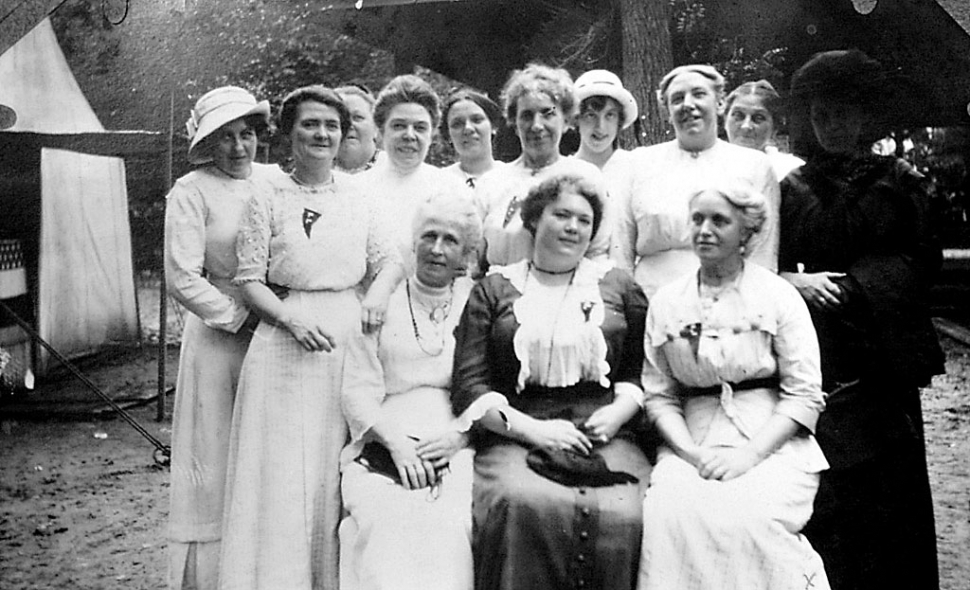|
To Mourn Well: How Elaborate Dress & Ritual Once Expressed Grief
 Group of Women in Chicago in 1902. One woman clothed in full mourning. By Anonymous — Monday, October 24th, 2011
Today we no longer see veiled widows dressed in black, or houses hung with black crepe. But in the 19th and early 20th centuries, grief in the United States had many prescribed customs. On Sunday, November 13 at 3:00 p.m. hear Shelly Foote, nationally recognized expert on costume history, discuss how clothing, accessories and other traditions helped people of that era deal with loss. The illustrated talk will be held at the Museum of Ventura County. Admission is $10 for the general public, $5 for museum members, and includes entry to all exhibits, including Departures: A Century of Death & Dying in Ventura County. For reservations call (805) 653-0323 x 7. Foote will explore the origins of some surviving customs from that period, such as memory cards, and the demise of others, such as jewelry made from the hair of the departed. She will also explain how, at a time when most deaths took place at home, specific mourning conduct helped families communicate their loss to the community as well as protect their need for privacy. Shelly Foote’s 30-year career with The National Museum of American History, Smithsonian Institution, included supervision and development of their 1700-1920 Costume Collection. As Assistant Chair of Social History, she was also responsibility for collections including more than 250,000 objects. A Ventura native, Foote volunteers her extensive skills in the Museum of Ventura County’s collections area, and serves on their Accessions Committee. She is president of the Western Region of the Costume Society of America. The Museum of Ventura County is located at 100 East Main Street in downtown Ventura. Hours are 11 a.m. – 5 p.m. Tuesday through Sunday. Admission is $4 adults, $3 seniors, $1 children 6-17, members and children under 6 are free. For more museum information go to www.venturamuseum.org or call 805-653-0323. |
